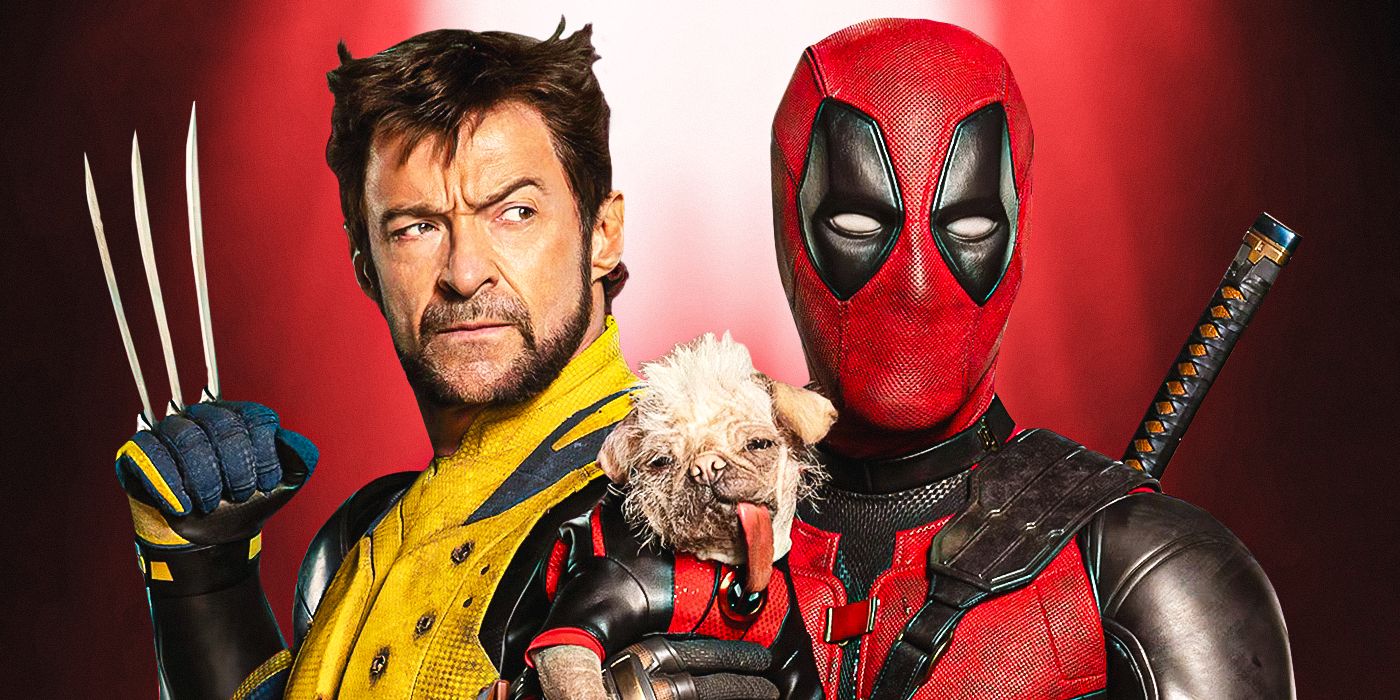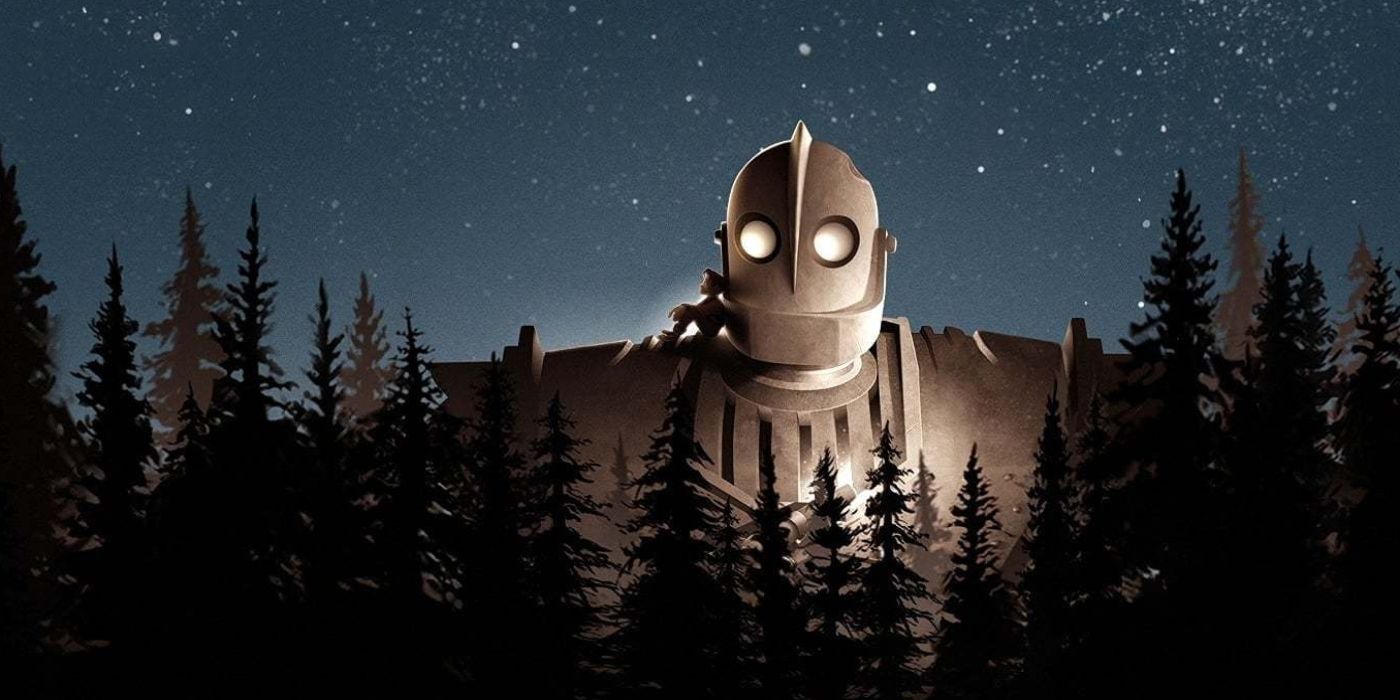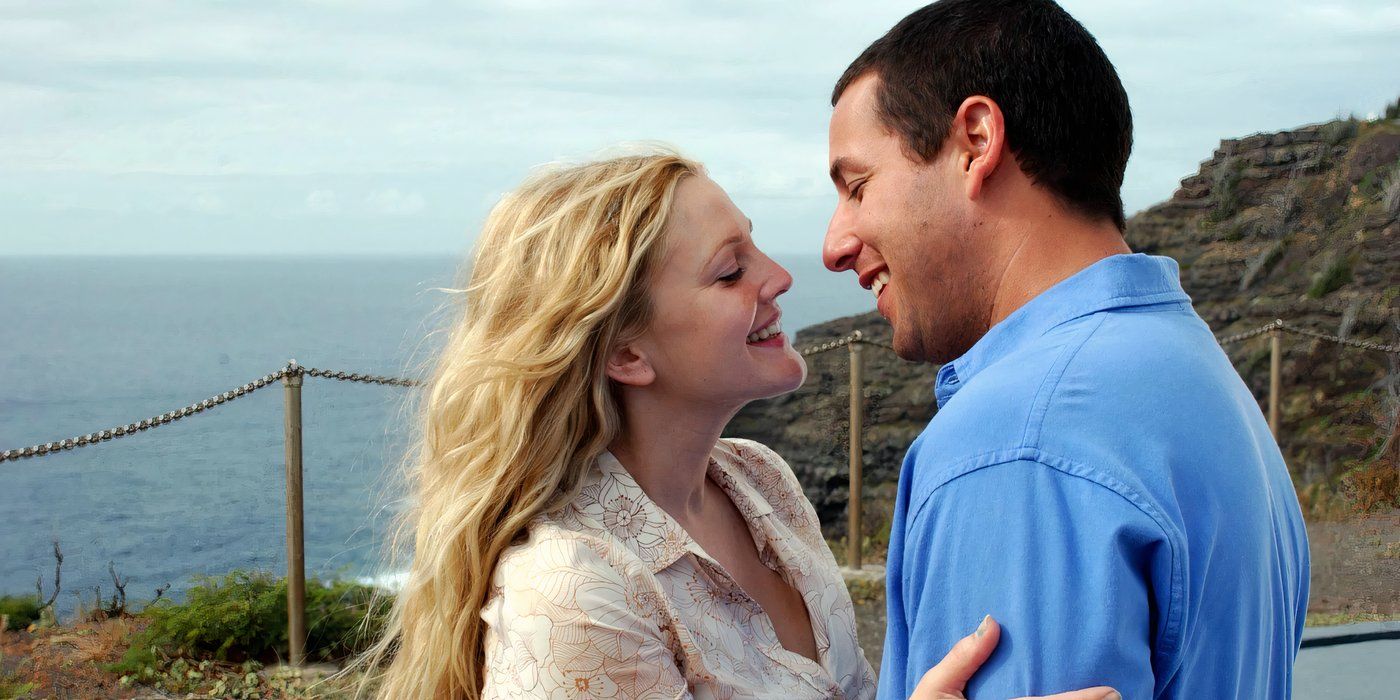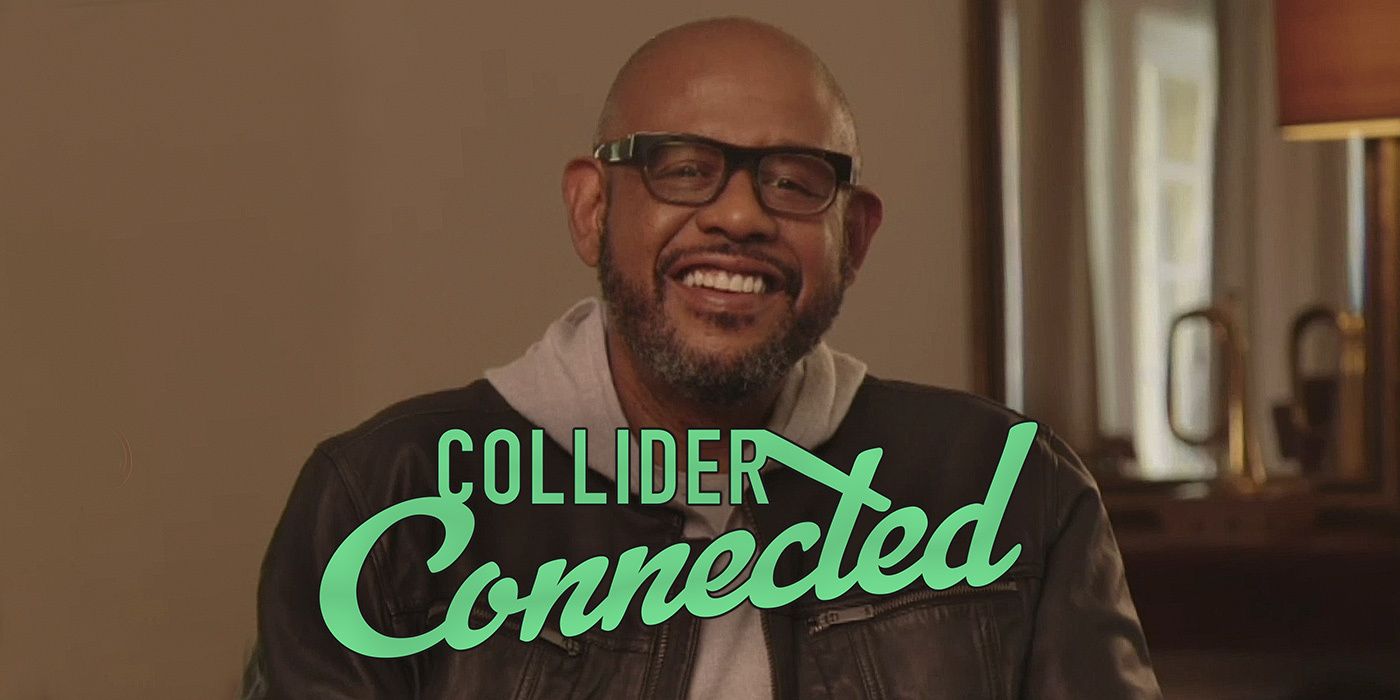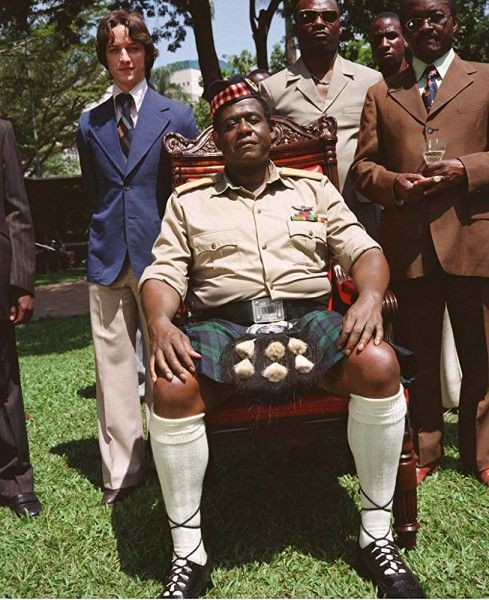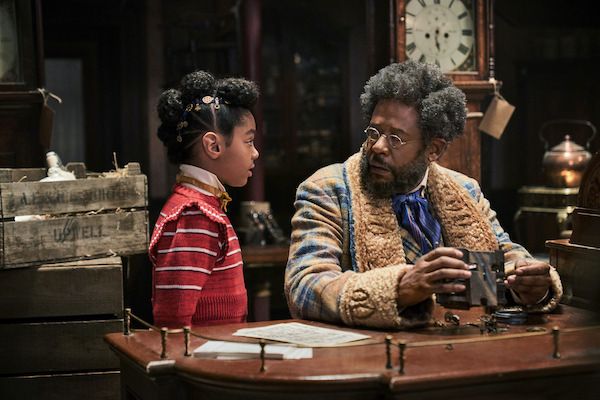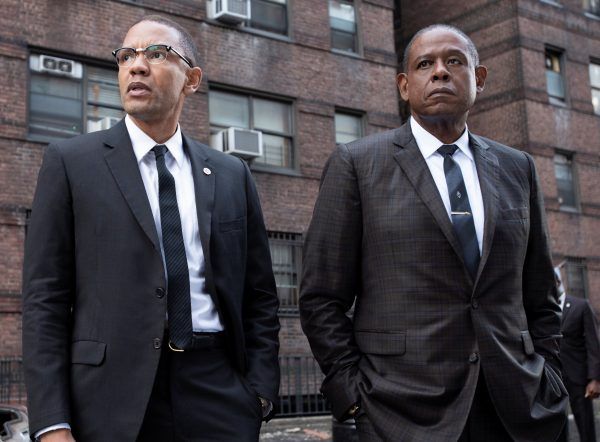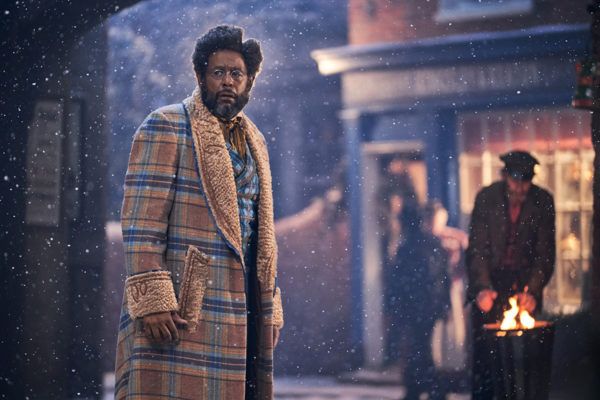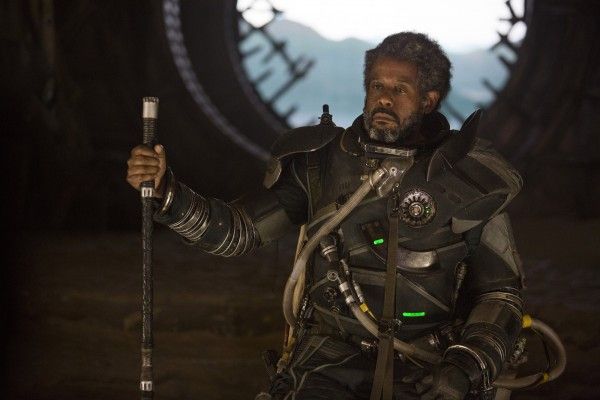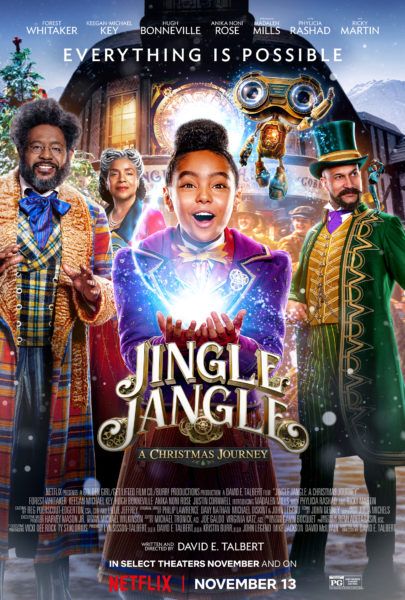When you think of Forest Whitaker, what's the first role you think of? As part of a long conversation about his career, as part of our Collider Connected series of interviews, the star of Netflix's holiday musical extravaganza Jingle Jangle said that on the street, he gets recognized for a wild assortment of his past projects — from the independent film Ghost Dog to his Oscar-winning turn as the star of The Last King of Scotland to, of course, joining the Star Wars universe as Rebel leader Saw Gerrera.
Jingle Jangle represents a challenge that Whitaker hasn't faced since the very earliest days of his career — musical theater. He leads David E. Talbert's Netflix original film as inventor Jeronicus Jangle, who after a series of tragedies is revived by his plucky granddaughter Journey (charming newcomer Madalen Mills) to re-engage with life.
It's one of many unconventional choices the Academy Award winner has made since both before and after winning his Oscar for The Last King of Scotland — an award he earned in his 40s, but still one which Whitaker credits as being a major turning point in his career, saying here that he had been "striving for that. To be able to disappear inside of a character. And for you just to see that character, hopefully not me."
Watch the full interview above or check out the edited transcript below for more, including how he feels about Saw Gerrera being a multi-platform character in the Star Wars universe, what led him to directing films like Waiting to Exhale and Hope Floats, and the unexpected role he played in a high school production of Cabaret.
Collider: I want to start off by just asking you how you got involved with Jingle Jangle, which is such a fun title to say.
WHITAKER: Oh yeah, it is. Well, the director, David Talbert, he asked me to sit with him and talk to him about it. And he told me the story of it. And I was really taken by what he was trying to do and the scope of what he was trying to create. So I signed on.
That's great. Tell me a little bit more about like what his pitch was, just because I feel like it's not necessarily the easiest thing to explain right away.
WHITAKER: He told me that I was going to be playing Jeronicus Jangle. It was sort of a classic Christmas figure, like a Dr. Dolittle, or a Willy Wonka. Oh, what was the other one? Those kinds of characters. Oh, Chitty Chitty Bang Bang. He was going to be going on a journey where he was going to lose everything and that his apprentice would steal all of his stuff. And he was going to go on a journey where his granddaughter would come into his life and make him begin to believe in life again, believe in magic again, and reconcile the family and come together. And that was really, I thought it was an amazing theme to be able to work from and a great character to play. And he said he was going to be a musical and I was going to be singing. And that was exciting to me. That felt like a real stretch. And it was going to be a challenge too. And so I signed on and I knew he was trying to make something that was multicultural. That was going to be my family. It was going to be a Black family, but it was going to be a universal theme that everyone could feel in love.
Doing a musical — you're a trained professional singer, but what was the difference from leaping from that to this?
WHITAKER: Oh, it's a big difference. I mean, see I've done a couple of musicals in high school, Jesus Christ Superstar and Cabaret. Those are the two I did. And I did a light opera called The Beggar's Opera and that's kind of all that I've done. And then I was a study in a conservatory. But I just left it behind and just started acting and studying acting and working on my craft, and so it was a really big deal to try to play a character that would be able to break into song and you believe it. And you say, okay, this is a real reality. So that was that special thing. It was a big challenge for me at first. I was really nervous.
Just because of the commitment you need to have to really sell that moment.
WHITAKER: I mean, I think it's already acceptable, like a stage that somebody can break out into song when they are in the middle of an argument. But in film, it's not as deep a part of our film language. Although we've seen a lot of musicals come out now. But this is like an original one. Most of them are not. You don't know what to expect.
He's drawn as a damaged character. He's had a lot of loss. And to be able to balance that and still be in a joyous environment in the film was another challenge to do. It was all a special kind of challenge.
I have to ask, do you remember what roles you played in the musicals you did in high school?
WHITAKER: I played Simon Zealotes in Jesus Christ Superstar. And I sang a solo of the German youth in Cabaret. It was a high school production. I think they were looking for somebody who could sing high enough to do it at the time. I was a first tenor, but it was most just singing the song to carry the story forward. Yeah.
That is quite a song to sing for anyone, I suppose.
WHITAKER: Yeah. I mean in the telling of the tale of the occupation... It was more used as a representation of that side. And it was just a question of who could sing the song.
So in looking at your career, doing something like Jingle Jangle feels likes such a really fun choice just because it's something that you can share with families. Is that a factor in what kind of roles you decided to take on?
WHITAKER: I guess I want to do roles that are full of hope and joy too. And I mean, I think I'm at a time and I want to try to do things like that. I want to do more films for my kids but, they're grown now. Although, I think a movie like Jingle Jangle would really appeal to them. Just like Black Panther appealed to them. So now I'll continue to do that. It's not going to be just one particular genre I'm going to do, because I think I do is I try to learn every time I do a new part. So I'm trying to stretch myself as a person. And so it won't be like, I'll be doing all these movies that are exactly like this. That's my lane.
Looking at your resume, that stands out a lot. It seems like you take on things you're really passionate about, no matter what the genre is.
WHITAKER: I do. I do. I mean the one I have after this one was special respect, which is about Rita Franklin. And I play her father, C.L. Franklin. And that character is so far removed from Jeronicus Jangle. It's like night and day. I mean, he's a sort of authoritarian, civil rights activists, preacher, who forces his daughter to seeing him tries to get her, nurtures her through, to become a star, their breakup. So it's quite different. They're all. I don't know what the one after that will be. I don't know. Next thing I do is go back and do Godfather of Harlem. I played Bumpy Johnson. He's a gangster. He's a mobster.
Back in the days when you could walk down the street without a face mask on, I'm very curious — when people would spot you, what would they tend to recognize you for?
WHITAKER: Oh, it's really weird. People recognize me from all different kinds of films. There's a group of people, if I was in New York, they would recognize me for doing Ghost Dog, which is an indie movie. And a bunch of people would recognize me from The Butler. And then other ones who would do it for The Last King of Scotland. It's a unique thing because young people to really old people — they have all different choices and stuff in between. But I can't say that there's just one movie in particular. They'll come up and say something like, I saw you in Smoke. And I'm like, Smoke? It's a long time ago. "You were great in The Crying Game." I was like, thanks. It's really nice to have a fan base that allows you to reach so many different types of people. Mostly probably because I do very different types of films.
I mean, in terms of the legacy of Ghost Dog. I feel like this was an interesting one to bring up is just because that feels like it was an indie film that really got a lot of attention, through your performance especially.
WHITAKER: Yeah. I loved working with Jim [Jarmusch] on Ghost Dog, it was a really interesting character. He wrote that character for me and it has its own audience. It's a cult audience that follows it.
In your head, is there any project that you feel was the first role where you felt like, okay, I feel like I'm an actor now. I feel like I'm making this work?
WHITAKER: It would be Last King of Scotland. It's really late in my career, but I kept striving for that. To be able to disappear inside of a character. And for you just to see that character, hopefully not me. I look back on other films and stuff, and now with time I've been able to see there was some qualities and I'm like, I appreciate that. But that was one where I felt that I'd done everything that I could to play the part. And there was nothing else more for me to do.
This is a question I'll never know the answer to — what is the reality of having an Oscar? How has that changed your life and your career?
WHITAKER: I think there's some respect around it. The thing was that before I got the Oscar, I was playing really diverse characters. I was playing Charlie Parker Bird, and then Crying Game and Smoke and all these different films with different types of characters. And after, I still continued to play all these different kinds of characters in different kinds of films. I can't say it wasn't a negative. It was a positive. But I continued to follow pretty much the path that I had taken all along. Jeronicus Jangle is completely different than C. L Franklin.
In terms of Jingle Jangle, what was it like working so much with Madalen Mills? It seems like you had a real chance to develop a dynamic together.
WHITAKER: I think she's amazing. It's rare that you meet a new talent, a young talent like that, and you can see that they're destined to be able to be doing this forever and make a mark on cinema in some way. I felt like she was the kind of artist that was going to be that way. She has that special quality and you can work with her in the scenes and it's really centered and focused to try to do something really great. And then she is authentic enough to go off and be a kid and play and still come back and with seriousness, add something new to the scene. So I think she's really special.
Again, asking you a question that I will never probably know the answer to — what is it like to be asked to join the Star Wars universe?
WHITAKER: It was exciting. When they talked to me about doing it, I was like, are you serious, Star Wars? And then when I did it and I actually went there to do it, it was like being involved in some sort of pre-existing universe that was there. And that you became a part ofi it. And I really enjoyed getting a chance to do it actually. I'm a sci-fi fan too. I remember in high school, when Star Wars first came out, the first ones, going to see it and being amazed at what was going on. And that was with Harrison and Chewbacca and it's great. Yeah.
When you got brought in, how much discussion was there around developing your character? Were you involved with discussions about what would Saw Gerrera look like? What would his voice sound like?
WHITAKER: I think, because we shot and there's stuff that we go and reshoot or shoot again and stuff, and those discussions about his hair and how that was going to be, and whether he was going to be the earlier warrior you saw, with short-cut hair, or the long kind of crazy frizzled, gray, sandy, character that he became. So I was involved in that discussion with them. But they're very clear on the dialogue already. And everything's the character. And there's lore around Saw Gerrera. Saw Gerrera exists in Star Wars lore and he's followed by people who had already been on an animated TV series. I've actually done him as an animated character as well. And so he has a lore that has to be followed too.
What is it like knowing that the character lives on, beyond your playing him on screen?
WHITAKER: I think it's kind of fun. It's fun to be watched and see what he's going to become. I mean, and also when they go into different multiverses, whether or not you're still involved in this universe over here. Or whether they're on this universe over here. So I think I'll be continuing to do stuff inside of their universes.
Would you feel different if they had decided that they didn't want to ask you back as Saw?
WHITAKER: I mean, I think I would be disappointed. But I mean, I still would probably enjoy the film. But I was fortunate I mean that they wanted me to do that and they've asked me. I've done it as an animated character. I've done it on film. I've done it three ways. I can't remember the third way.
Is he involved in any of the theme park attractions?
WHITAKER: No, not yet.
Okay. Video games maybe?
WHITAKER: Oh, that's right. Yeah, exactly. Yeah, a game.
Are you a much of a gamer?
WHITAKER: Not really. I like to play somewhat, but I'm not a gamer. I mean, gamers around the couch, going forward, sometimes the days it in, but it's not me.
But you enjoy games casually.
WHITAKER: I do casually, I guess. But it's been a while since I've actually played something. So I guess I wouldn't say so. I mean, when I was a kid, I used to go in to play games in the mall and stuff all the time. But if we're talking about serious games that are... I'm not a gamer, although I do game.
One thing I find fascinating about your career is the fact that you've also directed some great films, and they've always felt unconventional choices. When you sat down with those scripts, what was it that made you want to direct them?
WHITAKER: Oh, well, when I first got into the first movie I did, which was for HBO called Strapped. It was a movie about the cop and his relationship with these kids with guns. And I asked them if I could change it to be about the kids and then not about the police officer. And that was kind of an interesting journey into that. I think when I worked with Terry McMillan on Waiting to Exhale, it was about a journey of healing that I was working on with her. And creating the script with her and Ron Bass.
And there's something that's thematic that I think carried through on the films that followed, which is about personal healing. And in this case, it was about these women trying to heal from their bad relationships and the loves in their life. I think the same thing happened in Hope Floats with Sandy Bullock and the character who'd just been divorced and humiliated, which had to try to find her life again and find herself again and love again. And that too was interesting to me, trying to figure out about healing. And so I did those films.
That makes a lot of sense. Do you feel like there's a particular reason why that subject matter appealed to you at that time?
WHITAKER: Oh. I was trying to understand about healing from relationships and stuff. And when I read the book, I could see different characters that I knew when I read Waiting to Exhale. And I wanted to put their stories on film with stories of my aunts and grandparents and friends and people that I knew and my mom. And so I try to infuse the script with those kinds of tropes and the same thing for Hope Floats was about healing. And then maybe even First Daughter was some ways about someone finding their own voice. A lot of the healing that happened inside of those films was about finding your own voice and finding your own way and embracing your own power. That was interesting to me.
Absolutely. Is directing something you want to go back to at some point?
WHITAKER: Yeah, I think so. It just takes a long time. It takes a number of years. Usually, every time I did it, it took me at least a few years to do. I think in a few years though. I've been starting to think more about directing again. I just have to find the right thing or the right story, and then I'll do it.
I have another Jingle Jangle question — which is, if I'm not mistaken, that the production was shot with you guys singing to playback?
WHITAKER: A lot of it was singing to playback. Although I am one of the few who gets to have the distinction of having to sing live. I sang the song "Over and Over" — we started out shooting that too. We were going to cut, but he kept going. And so I started singing the song and I sang it through, and the crew was really supportive of me actually, after it was done, they could, they gave me like a bunch of claps and stuff. And that was nice. That was very encouraging of me, of them.
It feels one of the trickiest magic tricks a musical has to pull off is feeling like this very alive, spontaneous thing on screen — while, at the same time, everything's really carefully coordinated.
WHITAKER: Yeah. I mean, I think when you have like major dance numbers and stuff that are dependent on certain things like that. You kind of have to do certain things to make sure that everything's on the same steps with the cameras and stuff like that. But there's a couple of times where — I think actually the one when my daughter, I just sing a line to her when she comes back to me and I asked her to forgive me. And then I sing a small little thing to her about my love and stuff. And so, but mostly everything else was was pre-recorded.
Is doing more musical or music-adjacent stuff something you see wanting to do in the future?
WHITAKER: I would love to do it. I had a good time. I think part of it's because I love the joy and stuff that the director has about making film and how much the story meant to him. And it was such an emotional experience for me that it lifted my spirits, honestly. I had been trying to revamped my verve about work and to have a passion towards it. And this did that for me. It ignited something in me that was really great.
There is such an amazing feeling when you're doing something that ultimately deals with people overcoming their fears and pains and finding life. It's a great thing. And because my character going through that journey, I'm going through it too, as a person and a little bit alongside him. So it's kind of nice to come out on the other end of it and find a little joy.
Were there discussions about calibrating the performance to make sure that it was not too Grinch-y or Scrooge-ish? Making sure you weren't going full Scrooge at the beginning.
WHITAKER: Don't go full Scrooge.
Don't go full Scrooge.
WHITAKER: Yeah, no, I always trying to figure out how to balance on that. When you look at some of the older classics, the actors were usually going through something sad and painful in some way. But you still enjoy taking the journey with them. They learned something, they were losing their house, they were losing their family. And I think there was a universe. I mean, a place I was trying to let them stand on that allowed you to feel the loss that he had, but to also be excited about taking a journey with him. And that's what I was trying to find that balance of. I don't know if I looked at it as a balance of that. It was just a person that, who is like that better play.
That's a really good point about Christmas movies. George Bailey in It's A Wonderful Life was going through some rough stuff and was kind of a jerk to people. But it's Jimmy Stewart. So you love him.
WHITAKER: Yeah, I think in most of them, there's something tragic underneath them. And I think the holiday seasons can be tragic for a lot of people anyway. These stories are usually are about people reclaiming things and restoring themselves and starting to find again, their ability to have a life, a home, a family friendship or belief in themselves.
No, it's definitely the time of year. Do you have any personal Christmas movie favorites?.
WHITAKER: Yeah. I mean, there's a old claymation one called Santa Claus is Comin' to Town that Fred Astaire did and they has that song in it, "Put One Foot in Front of the Other"... There's a great scene in that, where being chased by the source, where all the time, when the icy sorcerer, and then he gives him, he says, when they capture him Santa Claus, Kris Kringle, he says, I have something for you. He pulls out this choo choo train. And the guy holds it and he says the choo choo? I've always wanted a choo choo and his icy heart melts. Yeah. So that's during, and it kind of like illuminated how Kris Kringle, our Santa Claus, learn how to do everything. How his reindeer actually learned how to fly.
Also The Grinch was something that I always looked forward to almost every year. It was one of those great classic holiday specials. And then you see his heart grow once he actually cares. I remember his dog that he had with the reindeer antlers and stuff.
So to wrap things up, looking forward, what are you excited about right now? Beyond work, perhaps even. Just what in your life is making you happy right now? Or content.
WHITAKER: I mean, I guess happy or content is hard. I mean, I think just to continue to try to connect with my family and stuff and during this time. I mean, I think it's still a difficult time. The pandemic and all the social and racial unrest and stuff that's going on in the country and around the world. So trying to look at the simple things, little things. Making sure I connect with my kids and stuff and trying to enjoy the little moments that we have. Good food, good things. Reconnecting with friends.
And as far as work. Yeah, sure. I have allowed a number of projects that we are producing and that I hope will affect people and say something to people and stuff like that. And start to show back up on the ninth of November. But that's going to be new for me. It's also going to show during the time of COVID where there are all these new protocols and things in place, and some just apprehensive, not knowing how that'll feel. Just positive that people are all trying and knowing that if people all continue to believe and connect with each other. They will come out of this and we'll be all right. But it's going to be a process.
Jingle Jangle is streaming now on Netflix.


